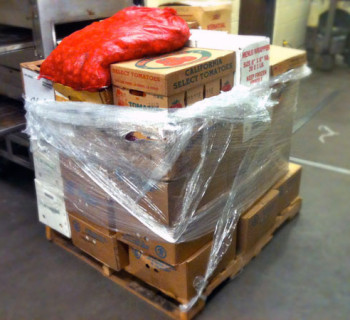Updated 04-02-14. You need only read a few of my posts on this site and you'll understand my passion for pho. I take my pho seriously. And personally, I'm not one to make fun at my favorite, beloved and respected chow. Certainly not in substance, not in name, and definitely not in pronunciation.
 Fuh? foe? FO? Fu-uuuuuhh? PhuUUH? What the P...? Well, you will find no funny stuff here. On the other hand, pronouncing "pho" can be challenging if you don't have the correct pho pronunciation to go by.
Fuh? foe? FO? Fu-uuuuuhh? PhuUUH? What the P...? Well, you will find no funny stuff here. On the other hand, pronouncing "pho" can be challenging if you don't have the correct pho pronunciation to go by.
Use your favorite search engine and you'll find various ways that people suggest how to pronounce pho. If you care and search long enough you'll discover one or two ways to say "pho" getting propagated by many people. Well guess what, regardless of how widely spread and popular these Internet versions are, and how well-intentioned the individuals may be, these "pho" versions are incorrect pronunciation. Update: there are some decent pronunciation guides now on YouTube.
Since my goal aims to stop further proliferation of such 'slanderous' treatment of my favorite noodle dish called pho, I won't mention them here to further the butchering of the word. Instead I'll offer the following for your reading (and listening) enlightenment.
First let's set the record straight. I'm not a hard-liner. I believe in freedom and capitalism as the next sensible person. But I think we can all do better with pho pronunciation. It's not difficult, and with minimal effort, proper guidance/demonstration and practice, you'll impress a Vietnamese-speaking person or enjoy watching him/her in shock with such unexpected fluency and command of the language and your knowledge of the dish. Yes, no more "f..." or "ph...", or whatever. So here goes.
Wikipedia correctly makes a distinction between Vietnamese and English versions of written and pronunciation of pho. That is not to say that it is necessarily acceptable or there is nothing more to it. Granted, written words and their pronunciations in other languages have been "Americanized" before (read 'butchered',) so this is nothing new. But in this global economy it's probably a good thing to try saying non-English words as correctly as possible. Hey anything to help foster international friendship and understanding, right? And when it involves "pho", it's even more important to pho lovers and newbies alike.
So, using the International Phonetic Alphabet, the Wiki explains that Phở is pronounced phonetically as [fə̃ː] which sounds like this:
Note: the Wikipedia pronunciation is from a Southern Vietnamese speaker, whereas my pronunciation has both Southern and Northern accents, with probably a 40-60% (South-North) influence. Also I deliberately accentuate to demonstrate the different sounds that exist in the word. Both are phonetically correct and legitimate pronunciation of the word phở.
Sometime a single sound doesn't really do justice. So below are a few additional phrases with proper pronunciation of "pho" in conversational usage so you get a better sense of the word "pho" and its inflections. You should be able to identify "pho" with no trouble. But more importantly you can now identify "pho" even when spoken in Vietnamese. Try numbers 3 and 4 below.
- Let's go have some pho today.
- I had pho with a friend this past weekend.
- Let's meet for pho at about 8 tonight - in Vietnamese.
- How is your beef pho? - to lady friend in Vietnamese.
There. It's pretty easy isn't it?
Well there is another challenge. North, Central or South Vietnamese accents. Encountering one when you're familiar with another can throw you off, but that's for another post. I can tell you one thing, of the two Vietnamese phrases above, one is Northern and the other, Southern accent. Can you tell which is which? If you promise not to cheat, take this poll below, and the answer is at the end of this article.
I hope that if you enjoy eating pho and care about this noodle dish (and who doesn't after the first bowl?), please pass on the proper pronunciation, or maybe gently correct a friend who has been misled. Better yet point them to this post so they can experience the recordings above themselves.
So what variety of pho pronunciation have you encountered? Share your views with us with a comment below.
By the way if you need help with Vietnamese pronunciation or would like some guidance or even request help, head on over to read my post on "Pronunciation of Pho and Other Vietnamese Words and Phrases," and leave a request.
#3: Southern Vietnamese accent
#4: Northern Vietnamese accent




Thanks very much for the audio files! As a linguist and speaker of 4 languages (Mandarin included), I find that translations into or using English letters or sounds can be challenging. (I also encountered this issue when learning pinyin.) One thing that I felt would be helpful for non-Viet speakers to know is the tones. It sounded like in the audio files that one Viet speaker used a tonal but the other didn’t, or it was hardly noticeable. Again, that may go back to what you were saying about North and South accents. I would say the closest English phonetic spelling would be “fuh” with a falling and then a slight rising tone. PLEASE correct me if that is not accurate. Thanks again, Cuong, for this post!!!
Hi Samantha: I think you are absolutely right. The tones are one of the most difficult but important factors for Westerners to learn to speak Chinese and Vietnamese, among other Asian languages.
Viet language requires tonal inflections to give correct pronunciation, but the majority of Western speakers do not have tonal training or even a concept of tonal inflection, which includes cadence, rhythm, accent, pitch, etc. I personally have no problem with the IPA system or doing the “fuh” or “fur” thing, but these do not convey the tones in anyway, which I estimate to be up to 75% of constituting to correct pronunciation. For phở, they’re definitely at least two tones, lower then rising. This is why I provided a slow version so people can hear the two tones. The southern accent has two tones, the northern accent has mostly the down tone without picking up.
Because the English language does not have such tonal variations, there is the following dynamic occurring. I’ve witnessed Vietnamese speakers teaching English speakers to pronounce a Viet word, but in the process of explaining the word during the conversation (of course the two are conversing in English,) the Viet speaker inadvertently pronounced the Viet word with an English accent, thus pronouncing the word incorrectly. This is because when speaking English it is not easy to suddenly change tone for just one word, then complete the rest of the sentence in English. Unaware of this, the English speaker took that as the correct pronunciation. This is how incorrect pronunciation spread widely, and the English speaker claimed that he heard it directly from a Vietnamese.
So the bottom line? I won’t correct you Samantha, because I can’t hear how you may pronounce it yourself 😉 but one thing is for sure: since you are a linguist and speak 4 languages, I trust that you know what you are doing. Awareness is key to much of this, and I think you have it.
By the way, the recordings are all my own voice. I can’t claim to be 100% perfect, but can you clarify your comment about some “audio files have a tonal but the other didn’t, or was hardly noticeable?” If you can point to some examples, I will surely check for any problem that may exist. Thanks!
Thanks for your response, Cuong. I just meant that to the untrained ear, the tones might be missed all together or dismissed as simply part of the background noise that comes along with English speaking. I heard them….however, as awful as it may sound, making the tonals much more pronounced (as it was in the one audio file) might make it easier for untrained ears to pick it up faster and accurately. All speakers tend to modify their speech when speaking to someone in a foreign tongue i.e. English speakers slowing down, speaking louder, enunciating more exaggeratedly. I thought your audio files were great and wanted to express my appreciation for them. I just thought maybe drawing more attention to the tonal aspect of the language and to certain words might make it easier to explain to some WHY its so important to say them correctly…and HOW to do it. 🙂 Great post.
Hi Samantha: Thanks for the good words. I’ll definitely take your suggestions into account for future recordings, and probably will go back to redo some existing ones to improve quality.
Thanks Cuong… I’ve always wondered this. I am a Filipino American, and pretty sensitive to the nuance. I’ve never been confident about ordering Pho, having to say it. I am now, practicing, and building my confidence before I do so, instead of pointing to the picture of the dish. I love pho! The audio files you posted are most helpful! Aloha, for your great care of your culture and language!
Hello Lawrence: Thanks so much for the good words, and I’m glad I’ve helped. I’m sure you’ll enjoy pho even more now 😉 You are absolutely right! I think we all should take great care of each of our own culture and language, especially when it comes to our PHỞ!! Yeah!
I understand there are lots of pho places to enjoy in Hawaii. Lucky you.
i love this. i may send it to all those i know who sound like asses when they repeatedly say “foe” even when i try to discretely correct them. or maybe i’ll just let them say “foe” and smile as i laugh hysterically inside.